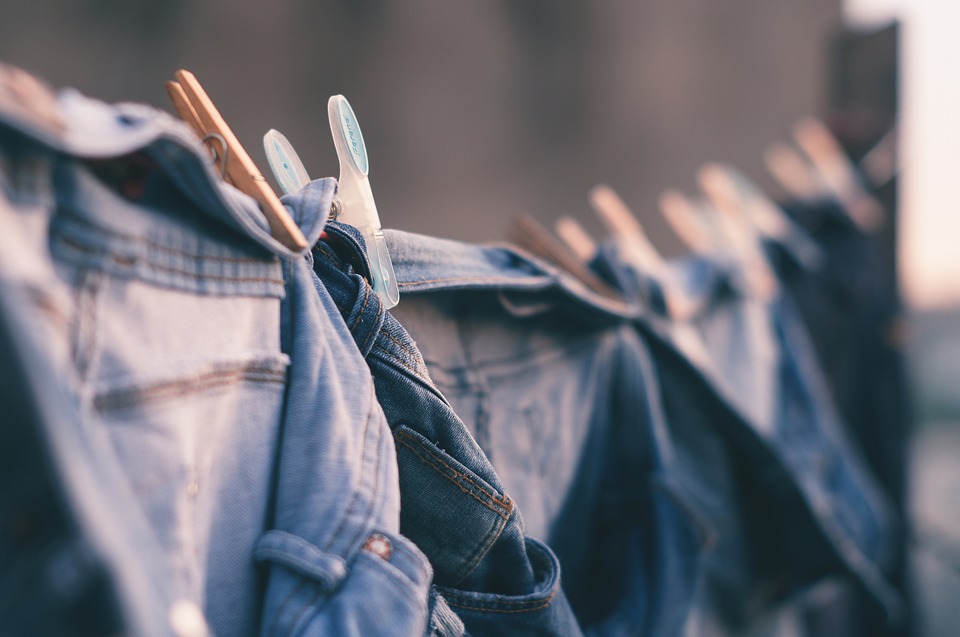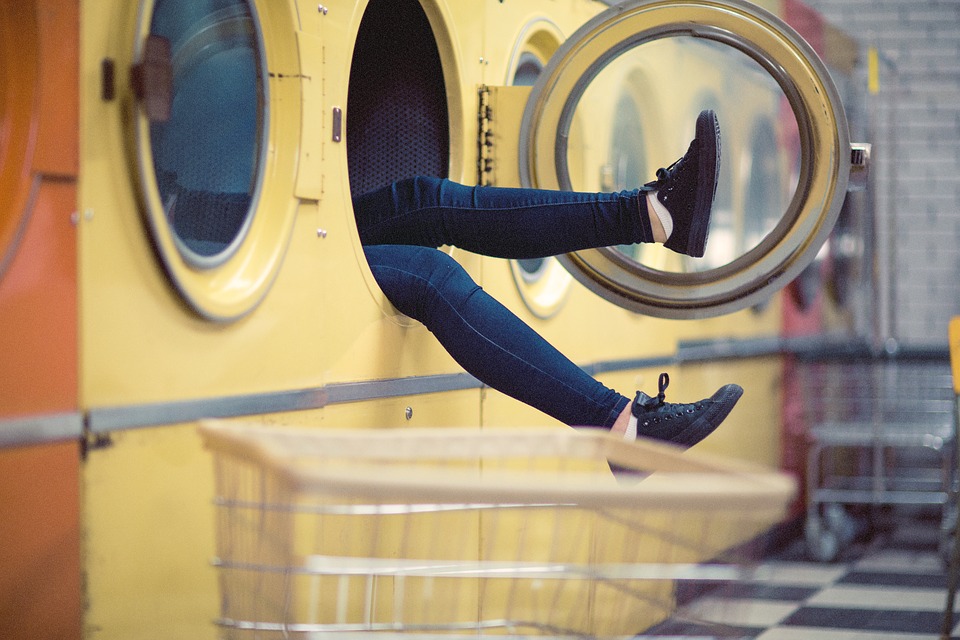All garments need washing and cleaning on a regular basis, and jeans are no exception. Although they are made of heavy-duty denim, jeans will still accumulate dirt and develop stains. The good news is that you can clean your jeans by placing them in the washing machine. With that said, you should avoid making the 10 mistakes listed here when washing your jeans.
#1) Using Bleach
Never add bleach to your washing machine when washing jeans. Bleach is a highly effective whitening agent that can revitalize the appearance of your white shirts and garments. When used on non-white garments, though, it can cause permanent discoloration. To protect your jeans from such damage, avoid using bleach or products containing bleach when washing them.
#2) Leaving the Zipper Down
Try to get into the habit of pulling the zipper up on your jeans before washing them. While leaving the zipper down sounds harmless enough, it may cause the waist to overstretch. As a result, your jeans may no longer fit after removing them from the washing machine. It only takes a few seconds to pull up the zipper, but doing so could prolong the life of your jeans, allowing you to get a little more use out of them.
#3) Pouring Detergent Directly On Jeans
Most washing machines have a compartment in which you pour the detergent. For whatever reason, though, some people pour detergent directly on their clothes. If you pour detergent directly on your jeans, it could stain the denim fabric. Therefore, it’s recommended that you use the detergent compartment when washing your jeans.
While speaking about detergent, avoid using too much when washing your jeans. Even if you use the detergent compartment, overfilling it with too much detergent could saturate your jeans in this soapy substance.
#4) Washing Too Frequently
You don’t need to wash your jeans each time you wear them. It’s perfectly fine to wear the same pair of jeans for two or more days before washing them. In fact, some denim experts recommend washing jeans only when they are dirty.
Each time you wash your jeans, it exposes the denim fabric to stress. This probably won’t cause any noticeable damage or harm after just a single round in the washing machine, but continuously washing your jeans will eventually degrade the denim fabric. If you’re trying to preserve the appearance and structural integrity of your jeans,
#5) Washing With Other Colors
A good rule of thumb to follow when doing laundry is to wash loads according to color. When washing jeans, for example, you should only wash them with clothes of the same color. If your jeans are indigo blue, avoid washing them with red, yellow, green or other colors. Instead, only wash them with other indigo-colored clothes.
Washing your jeans with different-colored clothes could cause discoloration — either to your jeans or the other clothes. You can prevent this from happening, however, by washing your clothes according to color. Create a separate load for each color that you intend to wash.

#6) Not Turning Jeans Inside Out
Before placing your jeans in the washing machine, turn them inside out. If you don’t, the outside of your jeans will be exposed to greater stress, which could cause discoloration or other forms of damage. Some people are hesitant to wash their jeans inside out, believing it’s not as effective at cleaning stubborn stains. In reality, though, it’s just as effective but won’t expose the outside of your jeans to significant stress.
#7) Allowing Jeans to Sit in the Washing Machine
Don’t allow your jeans to sit in the bottom of the washing machine after they are finished washing. Once the timer goes off, remove your jeans from the washing machine and transfer them to the dryer. Allowing your jeans to sit in your washing machine for a prolonged period encourages mold and mildew. You may notice your jeans have a musky smell, for example, indicating that mildew has settled into the denim fabric. To prevent mold and mildew from forming on your jeans, move them to the dryer as soon as the timer on your washing machine goes off.
#8) Not Checking the Pockets
We’ve all been guilty of washing pants without checking the pockets. Normally, this won’t cause any problems. But if you leave coins or other hard items inside your pockets, it could damage either your washing machine or your clothes. So, always check the pockets before washing your jeans. If you discover any items inside your pockets, remove them.
#9) Washing in Hot Water
Washing your jeans in hot water won’t cause any immediate harm. On the contrary, you can probably wash them dozens of times in hot water without noticing any damage or degradation. Nonetheless, you should still wash your jeans in cold water. Not surprisingly, hot water causes more stress to jeans and other garments than cold water. Heat forces the denim fabric to expand, followed by contracting once the fabric has cooled. These fluctuations can take a toll on the denim fabric, causing it to stretch or shrink.
Furthermore, washing jeans in hot water increases the risk of fading. Heat forces the dye within the denim fabric to leach out. It’s not a substantial amount, but your jeans will still lose enough dye to result in a lighter, more faded color. Washing your jeans in cold water, on the other hand, protects them from fading.
#10) Using Insufficient Water
You need to use sufficient water when washing your jeans. Depending on your washing machine type, it should have several water settings, such as low, medium and high. Using the low water setting will obviously save you money on water, but it could fail to properly clean your jeans. If only the bottom half of your jeans are submerged in water, the top half will remain dirty and uncleaned. Choose the medium or high water setting on your washing machine to fully clean your jeans.











